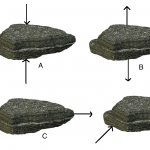What it means to be a human?
What it means to be a human?
There are various angles for which sciences that deal with man have defined the whole concept of humanity making it a rather complex subject. Being human is defined by the underlying creative capacity whereby any other kind of matter simply retains or reproduces their form. Moreover according to Karl Marx, humanity replaces individual private property with state property and constitutes crude communism and in essence all factors that happened under the existing historical socialism. A widespread belief in western ability exists in a bid to raise the potential of humanity through psychology and formative ideas. A traditional outlook is shifted to the ideologies of free will that are assumed to lack control of unconscious drives and emotions that define a day to day life. The reality is that even if humanity defines we are free thinkers we are not as it becomes dictated by human peripheral factors that are beyond our control. Scientists read from the same script on the matters of enlightenment which characterizes humanity ascent from savagery to modernization. On functionalism, humans are depicted as a form of spiritual reality that poses some collective effervescence that are emergent due to intense interactions among people thus creating a sense of being part of something larger than oneself. This forms the basis for profound experience with regard to religious ideas, and bringing a society into being. An increase in population as well as division of labor gradually replaces the mechanical solidarity with an organic solidarity founded on material interdependence, though on the other hand it could cause egoism and anomie
On another perspective, there are massive challenges on what it means to be human on the basis of human peripheral factors. Even the scientists themselves contradict on perspective regarding their views on humans. For instance, Gazzaniga (2008) holds the idea of human greatness & potential especially on the autonomous self and use of logic as opposed to Fredrich (2008) who depicts human as nothing than brutal animals trying to survive at the expenses of others. The former possess a challenge for humans to step out over their reliance on external authority and make use of their ability to apply logical thinking and free will. In general, properly defined humans ought to ensure that humanity lives in harmony with one another.
Moral judgments involve the evaluation or opinion created as a result of action or inaction, motives, as well as defined character traits for which good or bad is measured against some predetermined standard of good. Indeed, the moral judgments as pertains actions or inaction is the primary focus that defines any discussion of moral judgments with a consideration of a general ethical analysis. Considering the outcomes that result from all aspects of psychology, cognitive and neuroscience perspective, it can be concluded that all these are correlated with moral judgment. Also, moral facts are dependent on response meaning that the bad just causes disapprobation for a community of moralizers. The project has essential implications influencing our understanding of practical reasoning. Engaging a thorough philosophical analysis is a good option for ensuring progress on conceptual questions. However, the major concern is whether one can possess some morals without having sentiments. The current evidence is favorable to the conclusion that ordinary judgment is by nature emotional. The fact that emotions rightly co-occur with moral judgments is rightly true that experience confirms that when people make judgments moral rules are violated and thereby a negative emotional response. One final argument for the justification of emotions as a necessary tool for morals is based on arguments of anthropological records. When we make moral judgments on the basis of other things other than emotions including reasons and observations, then it is expected that we encounter moral convergence in a cross-cultural basis.
Throughout historical times, people have endeavored to create better, fair, and equal systems of justice. This is not just to improve the society in which one lives, but to also find a sense of meaning in defining the responsibilities that people ought to hold within their civilization and hence create a just way of living. From the Biblical times, of the Old Testament there are examples of how the Hebrews (Gazzaniga, 2008) created their own justice. This is exemplified in the Ten Commandments that are indeed a collection of laws. The Greeks and Romans are renowned persons for developing a justice system that outlined rules, laws, and rights for the people to adhere to. Moreover, they created a justice of a trial consisting of a jury in a bid to ensure trials are fair for the accused criminals. Today, we have adopted such information that was learned from hundreds of years ago to help us create an own form of justice and hence maintain a better society for all. It is through such previous knowledge that we shape and uphold our modern day society’s foundation in an endeavor for protecting the good of our society.
References
Gazzaniga, M. S. Fredrich, K., (2008). Human: The science behind what makes us unique. New York: Ecco.




